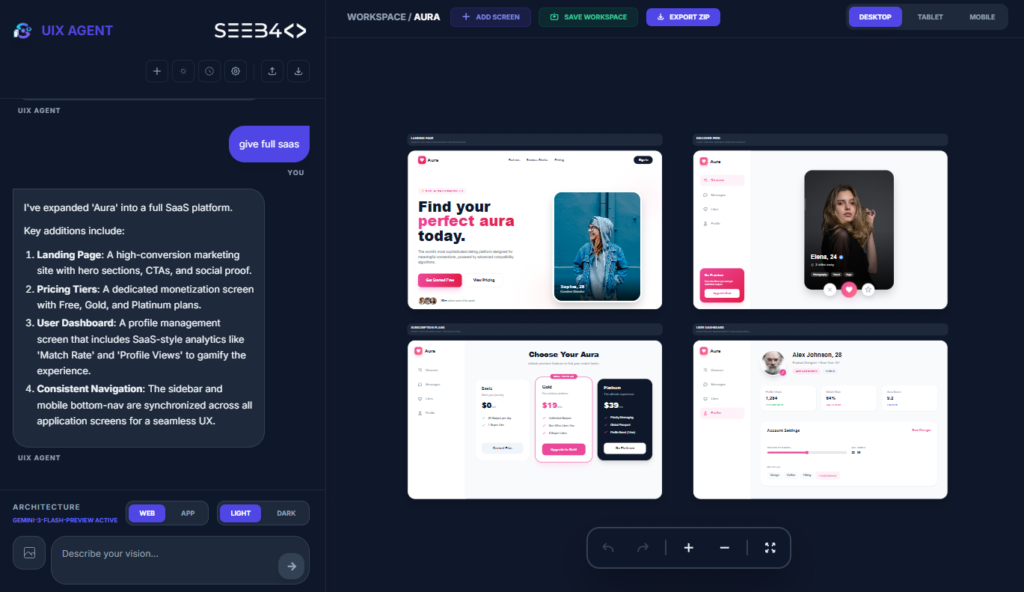In today’s ever-evolving tech landscape, the key to success as a developer lies not only in mastering programming languages but also in leveraging the best tools. These tools can simplify workflows, improve productivity, and allow you to focus on solving the real problems. Let’s explore the 10 most essential tools that every developer should know and use in 2024.
1. Visual Studio Code (VS Code)
Visual Studio Code stands out as one of the most popular code editors, offering flexibility, speed, and a plethora of extensions that cater to developers of all experience levels.
- Key Features:
- Built-in Git support for seamless version control.
- IntelliSense for intelligent code completion.
- Integrated terminal for multitasking.
- Recommended Extensions:
- Prettier: For automatic code formatting.
- ESLint: To enforce coding standards.
- Live Share: To collaborate on code in real time.
- Pro Tip: Use the Workspaces feature to group related projects under one environment.
2. Docker
Docker has revolutionized application development by enabling developers to package applications and their dependencies into isolated containers.
- Why It’s Crucial:
- Environment consistency across development, testing, and production.
- Simplifies microservices architecture.
- Example Use Cases:
- Running a local instance of MySQL or MongoDB without installation.
- Deploying web apps on Kubernetes clusters.
- Pro Tip: Use Docker Compose to manage multi-container applications efficiently.
3. Postman
APIs are at the heart of modern development, and Postman provides a powerful platform for testing, documenting, and automating API workflows.
- What Makes It Awesome:
- Pre-request and test scripts written in JavaScript.
- Collaboration features to share API collections with your team.
- Advanced Features:
- Mock Servers: Simulate endpoints for testing before actual implementation.
- API Monitoring: Check API health and performance over time.
- Pro Tip: Use Postman’s command-line tool, Newman, to run collections as part of CI/CD pipelines.
4. Git and GitHub
Version control is essential for every developer, and Git paired with GitHub offers an unbeatable combination for collaboration and code management.
- Key Benefits:
- Branching and merging for parallel development.
- Pull Requests for peer code reviews.
- Actions for automating workflows.
- Pro Tip: Use GitHub CLI to manage repositories directly from the terminal.
5. GitHub Copilot
GitHub Copilot, powered by OpenAI, is transforming the way developers write code. It provides AI-generated suggestions based on context, making it an indispensable tool for beginners and experts alike.
- Why It’s a Game-Changer:
- Auto-completes functions and classes.
- Suggests code snippets based on comments or incomplete lines.
- Limitations:
- Works best with popular frameworks and languages like JavaScript, Python, and TypeScript.
- Pro Tip: Pair it with VS Code for the ultimate coding experience.
6. Figma
Gone are the days when developers and designers struggled to communicate. Figma bridges this gap with its collaborative design platform.
- Developer Benefits:
- Export design assets directly into code-friendly formats.
- Inspect elements to get exact measurements and CSS styles.
- Real-time collaboration with designers and stakeholders.
- Pro Tip: Use Figma Plugins like “CSS Export” to generate code-ready assets.
7. Jenkins
Automation is at the heart of modern software development, and Jenkins is the king of continuous integration and delivery.
- Why Use Jenkins:
- Automates build, test, and deployment processes.
- Offers extensive plugins for integration with various tools.
- Common Use Cases:
- Deploying applications to cloud services like AWS or Azure.
- Running automated tests after every code commit.
- Pro Tip: Use Jenkinsfiles for defining pipeline logic as code.
8. Selenium
For developers involved in testing, Selenium is an irreplaceable tool for automating browser-based tasks.
- Why Developers Love It:
- Supports multiple languages, including Java, Python, and JavaScript.
- Works across all major browsers and platforms.
- Advanced Features:
- Integration with CI/CD pipelines for automated regression testing.
- Headless browser support for faster execution.
- Pro Tip: Pair Selenium with TestNG or PyTest for robust test management.
9. Notion
While primarily a productivity tool, Notion is perfect for managing project documentation, task lists, and knowledge bases for developers and teams.
- How It Helps Developers:
- Organize and share project roadmaps.
- Maintain code snippets and guides in one place.
- Pro Tip: Use templates for quicker setup of project documentation.
10. Kubernetes
As applications scale, so do their infrastructure needs. Kubernetes helps developers manage containerized applications across clusters of servers.
- Key Benefits:
- Automates scaling, deployment, and management of applications.
- Self-healing mechanisms ensure high availability.
- Pro Tip: Use tools like Helm for managing Kubernetes configurations effectively.
Conclusion
Mastering these tools won’t just make your life easier as a developer—it will set you apart in the competitive tech industry. Whether you’re building complex applications or managing large teams, having the right tools in your arsenal is critical.
Looking for more developer insights? Stay tuned to seeb4coding.in and blog.seeb4coding.in for tutorials, tips, and in-depth guides tailored for developers.










